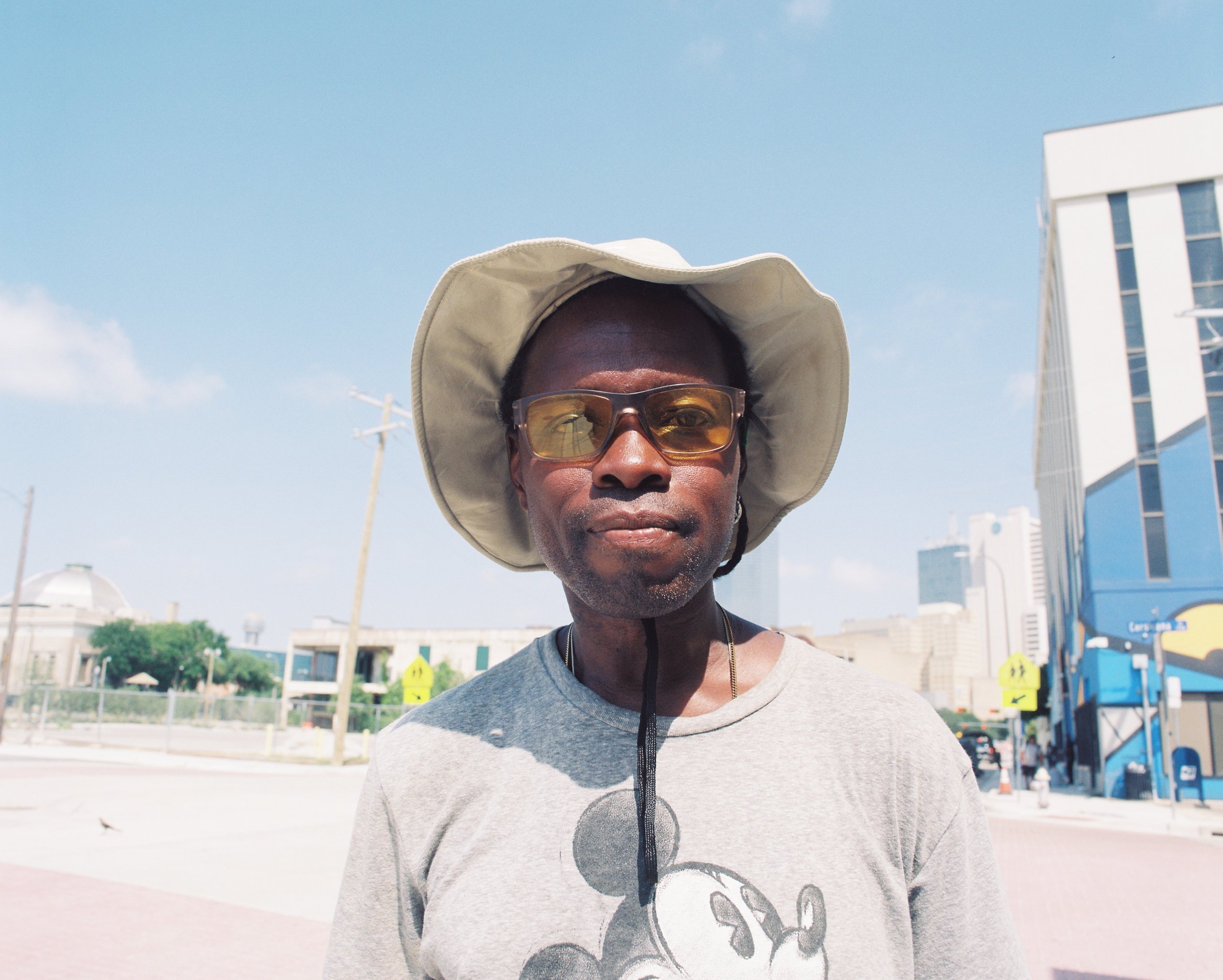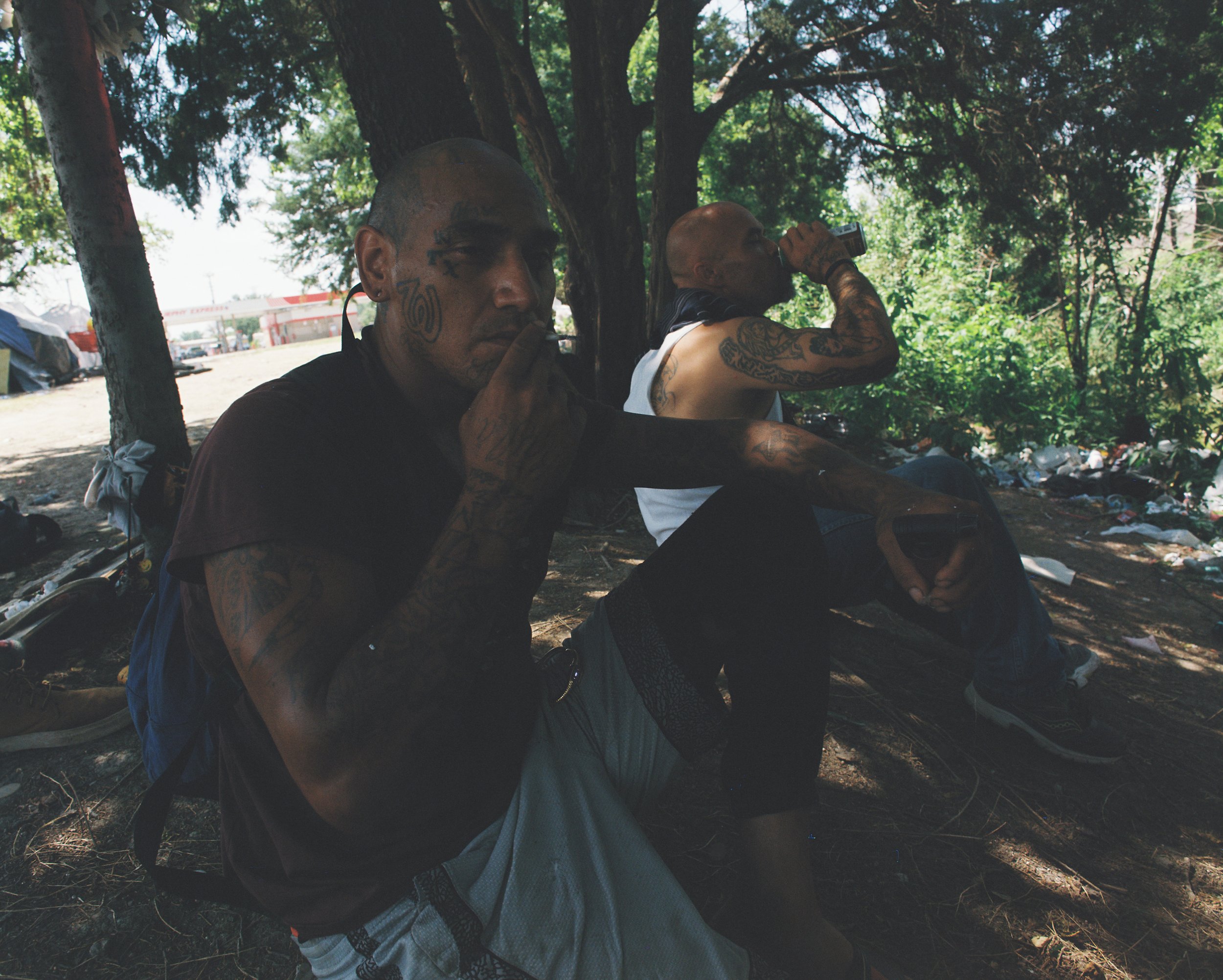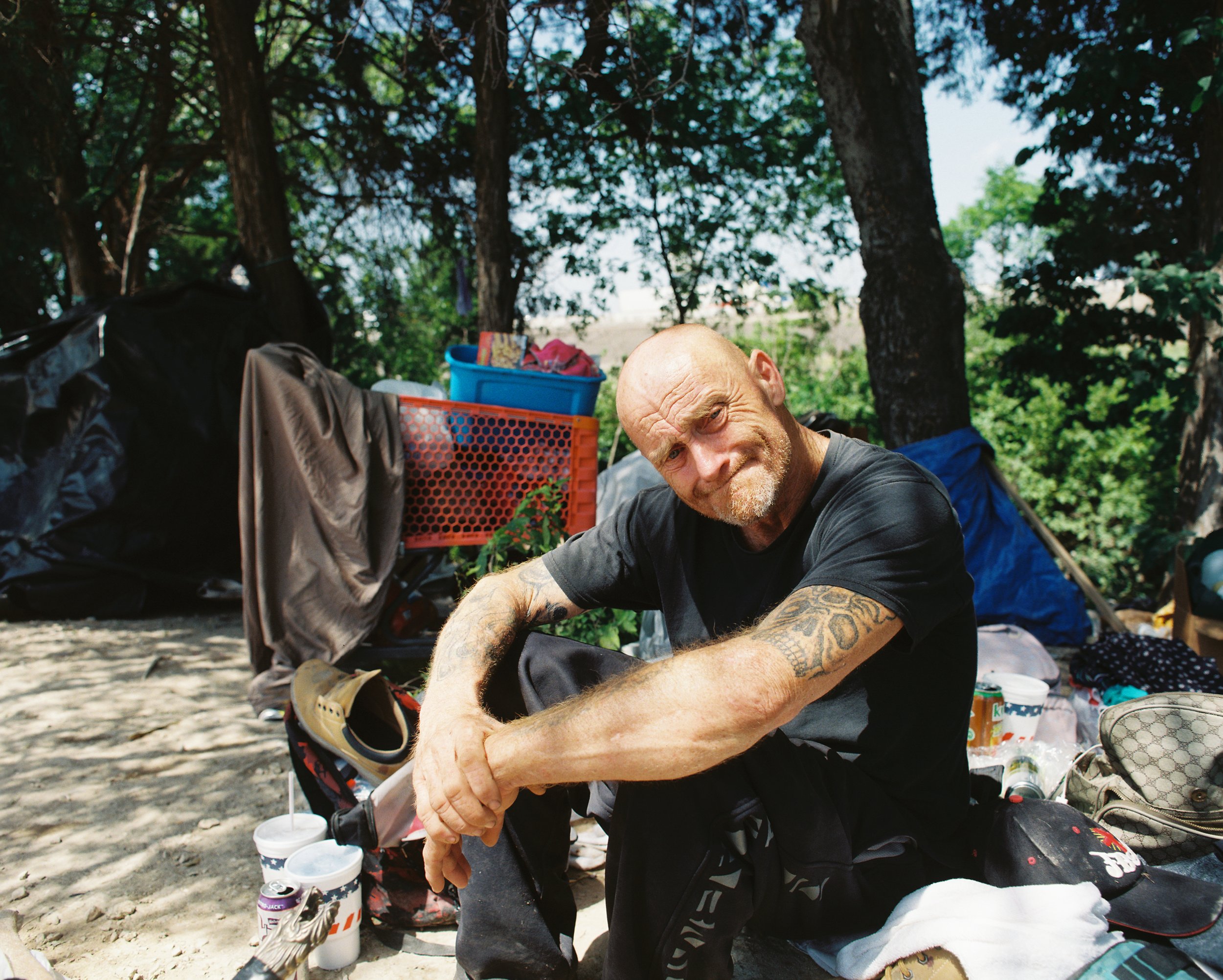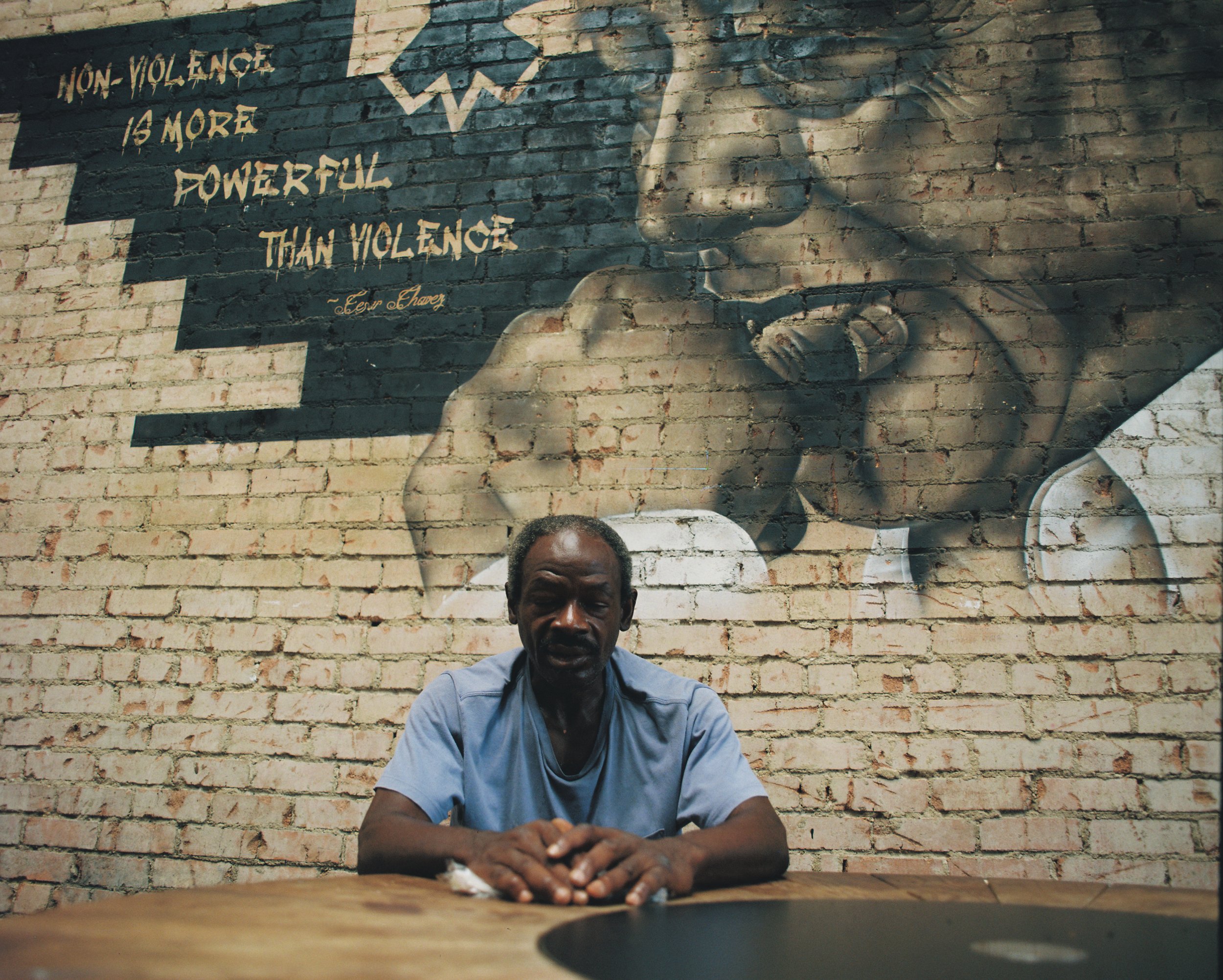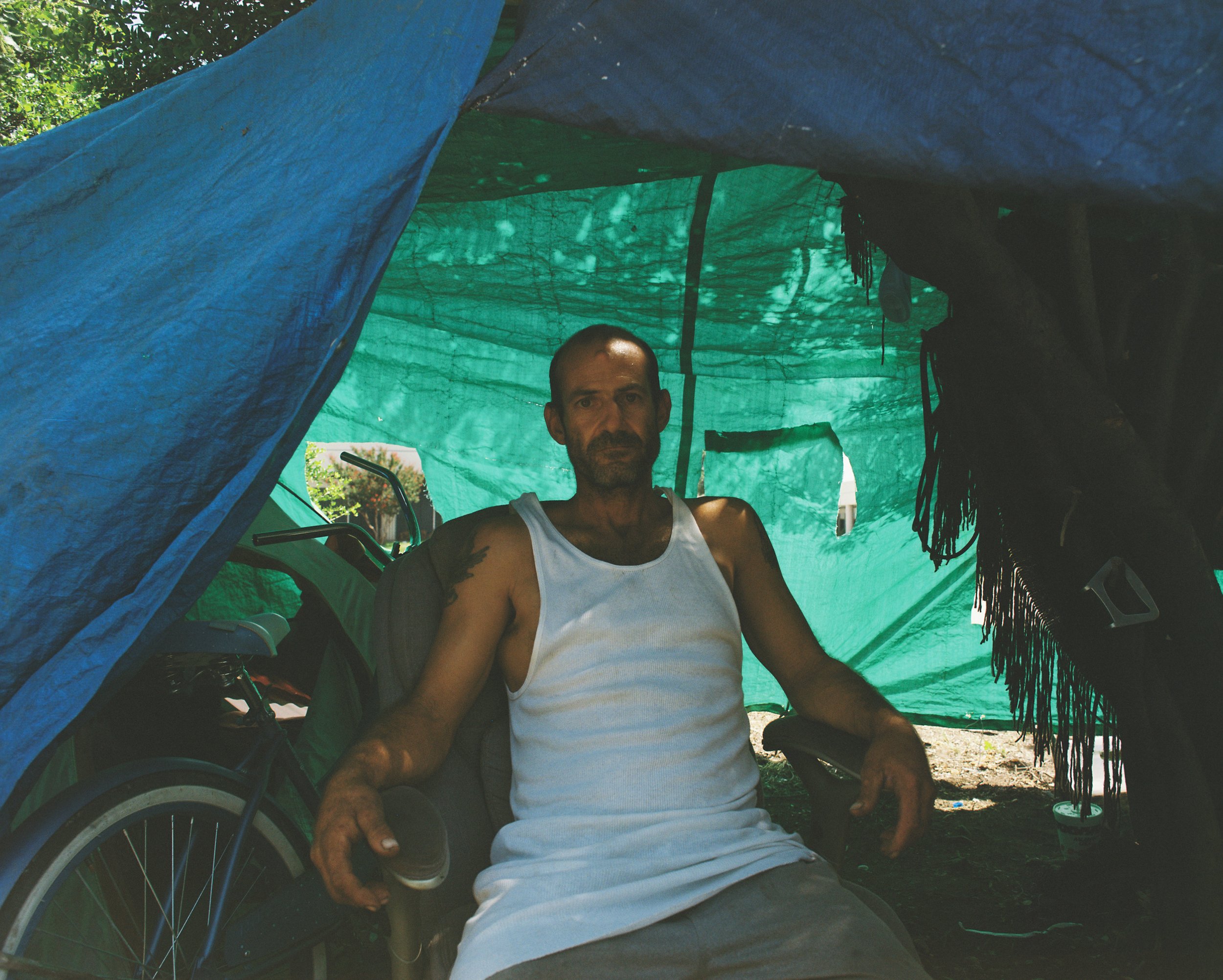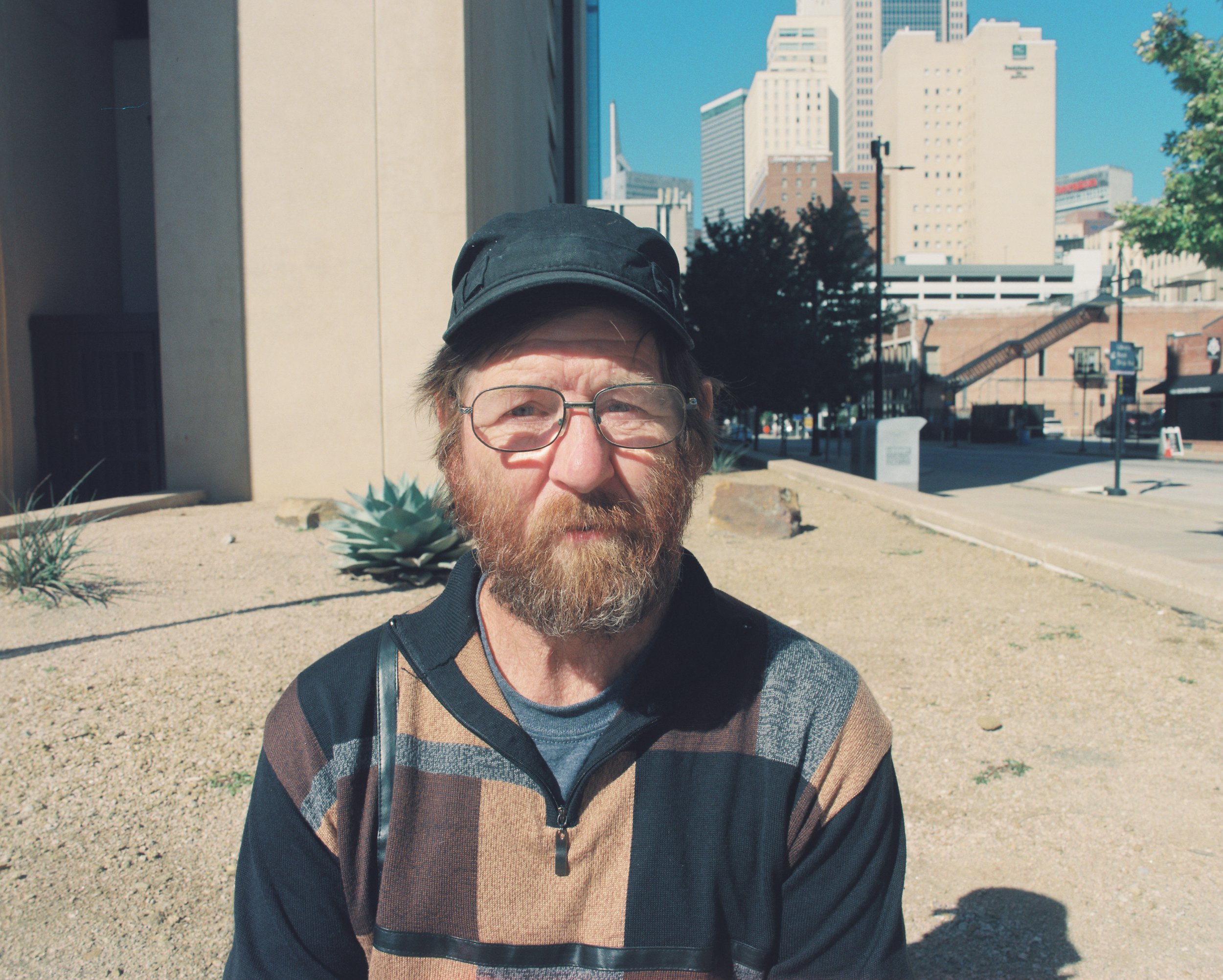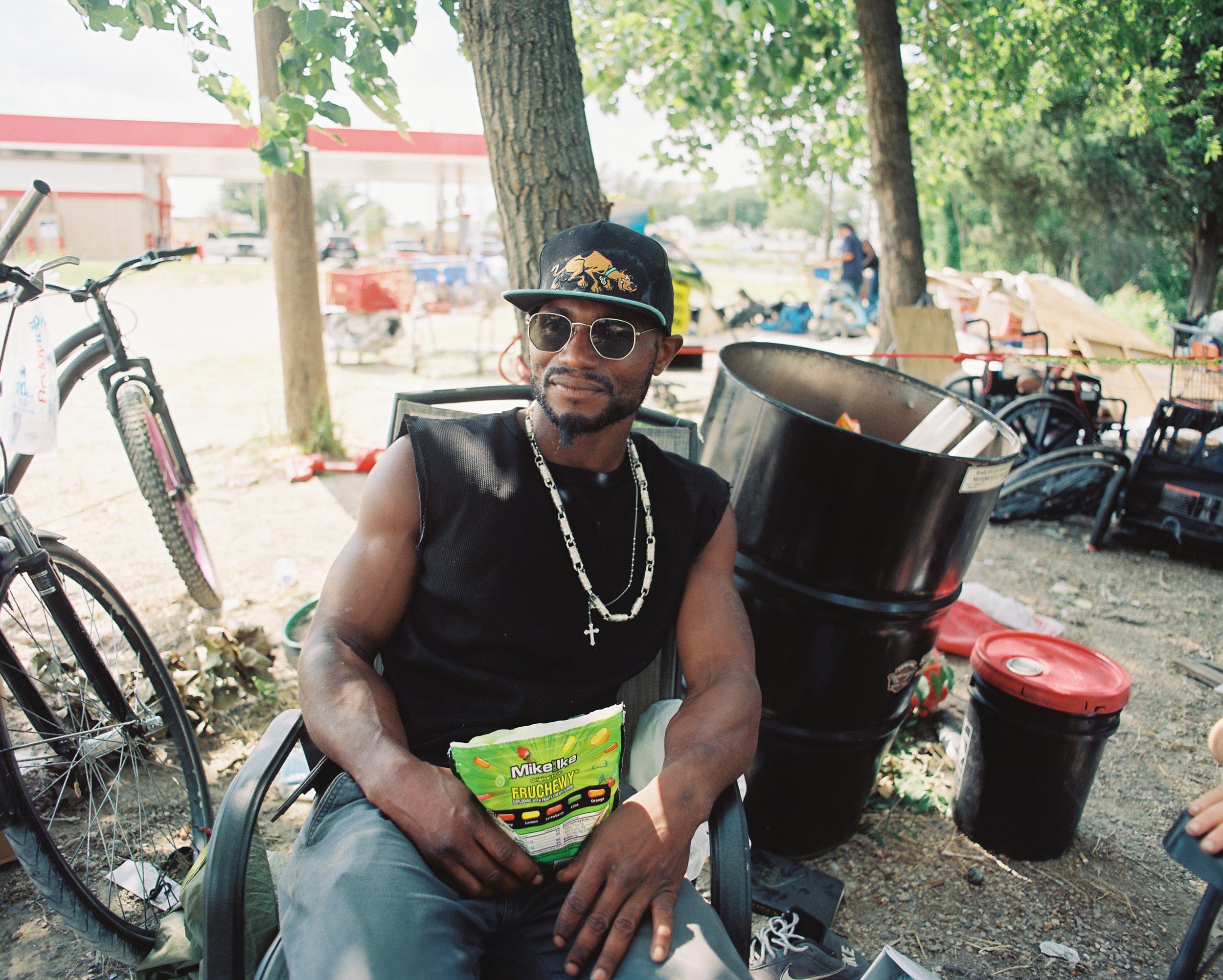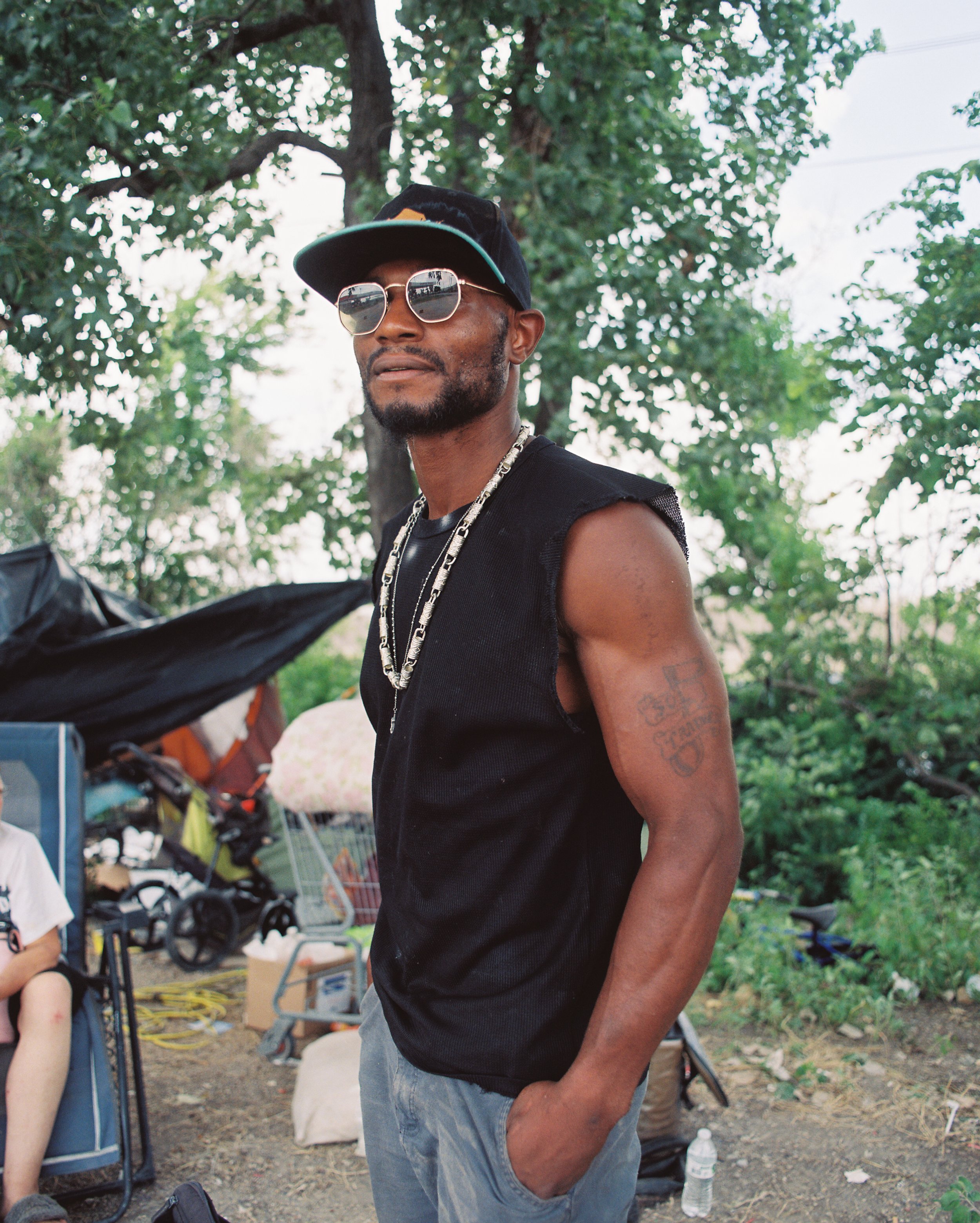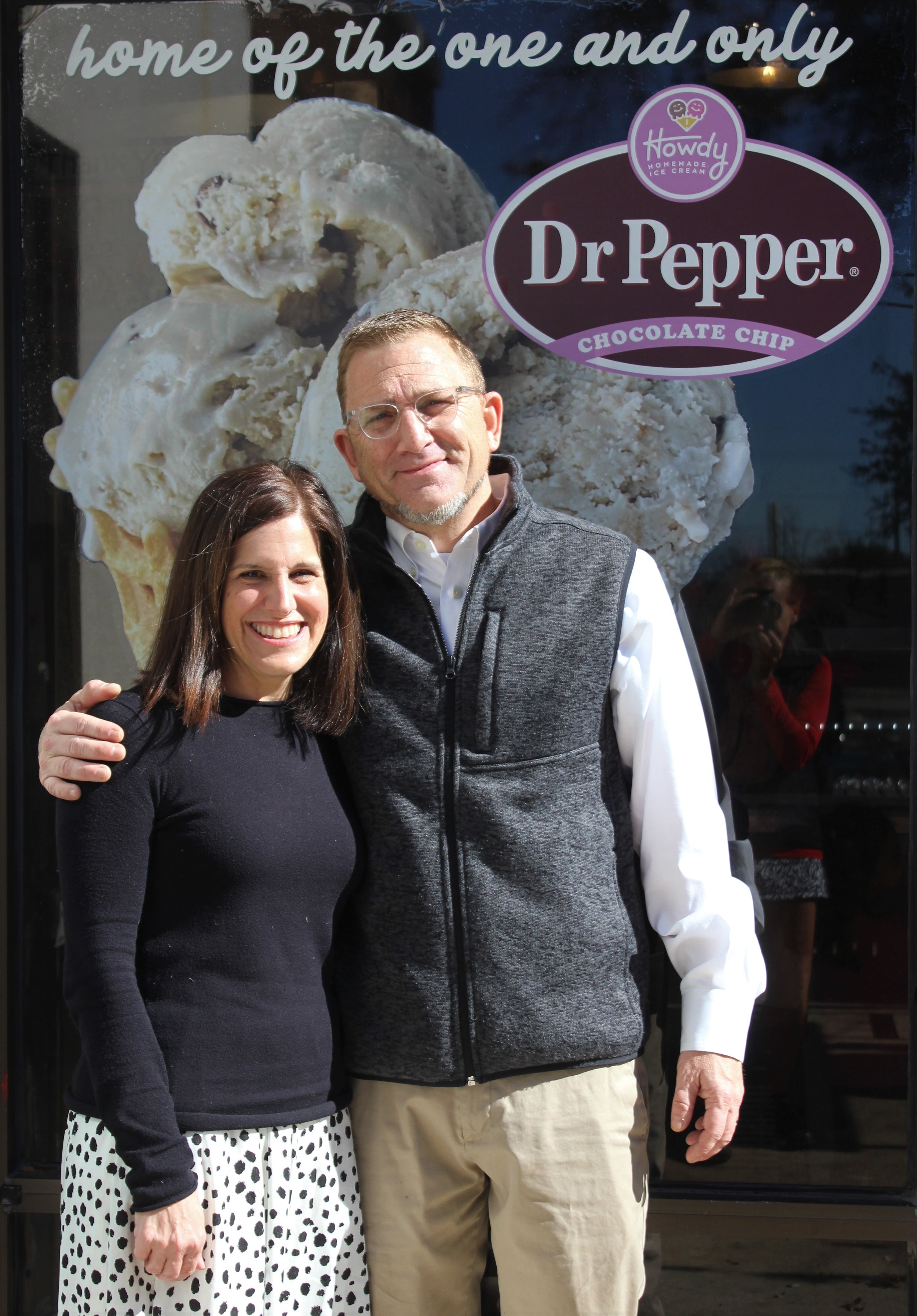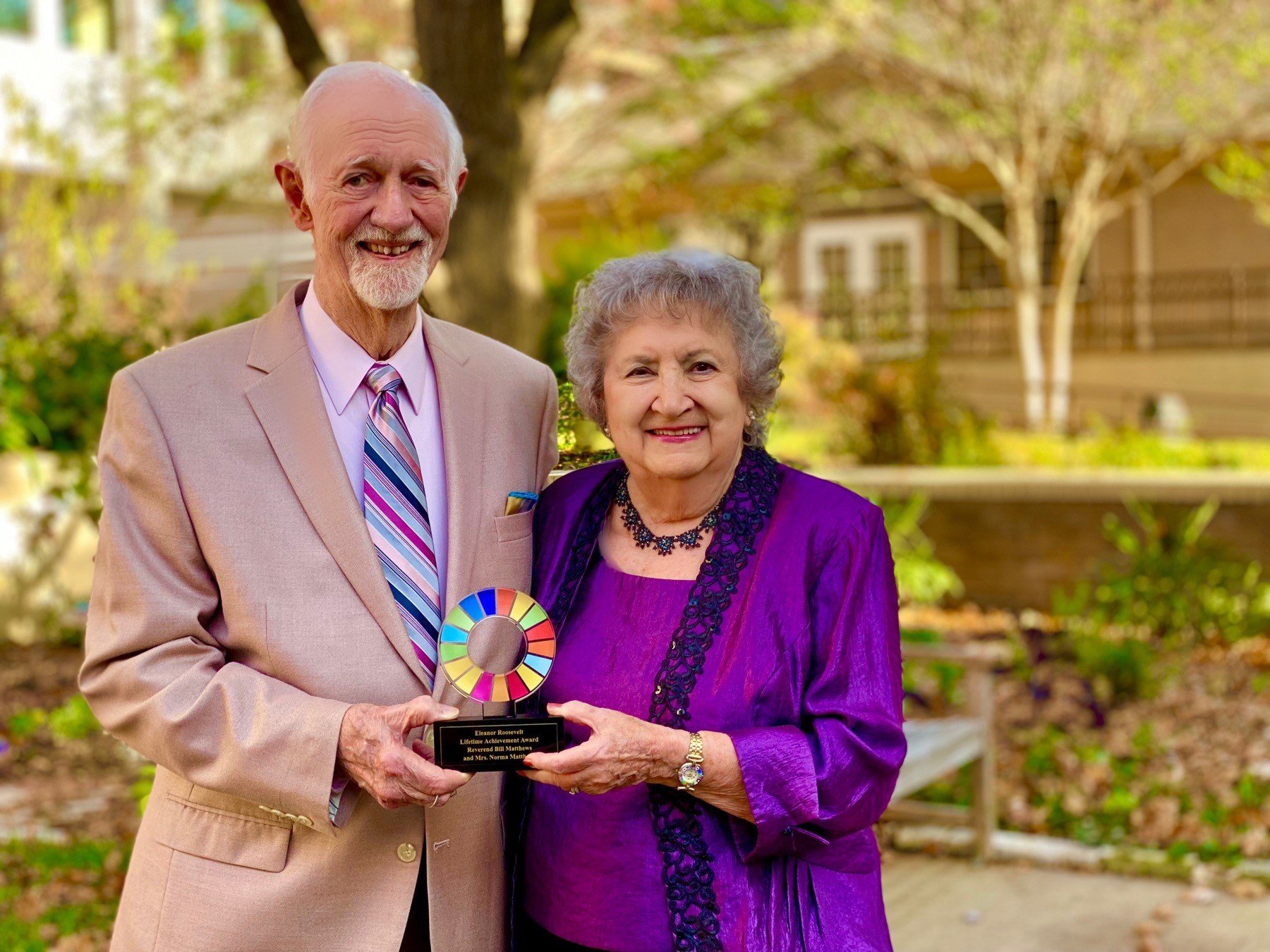Published December 15, 2021 at 6:39pm.
Story and photo essay by Don Tortellini.
We invited Dallas photographer, Don Tortellini, to present his photo essay on homelessness: the faces of Dallas. Don spends time with the homeless and has become a trusted friend to many. The following story and captions are Don’s words from his personal interviews with each participant.
Imagine being in an unfamiliar place, sleeping next to unfamiliar people, showering in close proximity, and lucky to even be selected into a shelter. This is the harsh reality for thousands of people in the Dallas Metroplex that constantly are floating around the city due to homelessness. There are so many different parameters that can cause a person to become homeless, whether it’s been bad decisions that have caused them to become incarcerated or bad relationships with shelters or just not knowing what services are available to help them altogether. Many ex-felons are denied housing upon release from prison which leaves them with nowhere to go. Constantly roaming the streets with no family or place to go is susceptible for a possibility of reoffending. Shelters have different practices and policies and, depending on their background, the shelter might not even be an option for that person.

Don Tortellini
Imagine just wandering the streets every day not knowing where your next meal is going to come from. Not knowing where you’re going to sleep, thinking of all the dangers that come from sleeping outside. Imagine once you’re finally settled and you find a place to lay down, you’re met with roaches and rats running around you, not able to comfortably sleep. Hearing cars driving over the freeway throughout the night makes the sound impossible for you to fall asleep. You wake up at the crack of dawn every morning not able to do the bare minimum of washing your face or using the restroom. These are some of the harsh realities that the homeless community faces on a day-to-day basis that a lot of people don’t realize. According to the Dallas City Hall website there are over 300,000 residents who live in poverty and only 2,000 beds city wide available nightly.
Have you ever thought to yourself how close you are or how far you are from being homeless and how many paychecks you are away from being on the streets? Or maybe have you thought about how many family members you have as a safety net to save you from being homeless? These are the kinds of conversations that I was having in the streets with these people. Some people lost their jobs and exhausted all of their savings and ended up being evicted from their apartments and ended up in the streets. Some of these people lost family members due to COVID and had nowhere to turn and ended up becoming homeless. People are so quick to judge a homeless person based on their addictions but when you think about living a life with no opportunity or no avenue out of the demise, sometimes that’s the only way to cope with their situations. Maybe that one beer or one joint is the only thing keeping them going throughout the day. A lot of homeless people are unable to get documents for themselves to apply for jobs because of being from other places or being incarcerated or not even knowing the information that they need to give them the direction on where to go to receive that information. From the outside looking in you would never know as a regular person what a homeless person deals with on a day-to-day basis unless you stop and talk to them and hear directly from them.
I went out into the streets and met a multitude of people that were homeless. I asked them 1) what their relationship was with shelters? I wanted to know 2) what their experiences have been with the city, the public & also with the police? I asked them 3) what does help look like from the city? and I also asked them 4) how they would want to be presented as people to society?
William Rosco Collins,62, has been homeless since 1985. He says that his calling from God is to do street ministry. He has been in and out of shelters, specifically The Bridge in recent years and says that the shelters are good and treat the homeless well for the most part.
William says that overall, the city has been good to him and the programs that they provide help those that want the help. He chooses the concrete because ministering to the homeless is what he feels is his calling on earth to do. Rosco bounces around the city hall area and mostly sleeps in front of the library.
Don says that the problem isn’t the city or the police but that it’s the younger generation of homeless people that make it harder for the ones that want out of the streets. “The younger generation is the ones that keep the stigmas alive,” he says. He wants to be presented to the world as the minister he is and that God is in control of his life and situation and that there is good out here in the world. Rosco wants to represent that.
Warren, 57, is from Cleveland Ohio. Warren doesn’t like shelters because of the curfew system, not giving you adequate time to search for a job while living a normal life. He feels there is also a lot of laziness amongst the homeless community in shelters and that many don’t want to better themselves rather rely on assistance.
Warren believes that the city does a lot for the homeless and that the people who don’t feel that the city does enough are just lazy. Warren told me that his relationship with the city overall has been good and his relationship with the police has been just as good. He wants to be presented as a spokesperson for the homeless and be able to talk to the world about what really happens in the streets.
Tattoo, 32, is from Odessa, Texas, and has been in and out of prison since he was 17. Tattoo doesn’t like shelters because he has been bulldozed eight times in the past five years.
Tattoo doesn’t feel he’s gotten the proper information to be able to take care of himself from the city or caseworkers. Since he spent much of his adult life incarcerated, he doesn’t know much outside the walls of prison. Tattoo just wants to be presented as a normal guy, nothing special.
Red/Rampage, 62, thinks that the shelters are good but are not for him. He doesn’t feel free, but more like a prisoner/slave whenever he’s been in a shelter because of the conditions and rules. Red doesn’t have a good relationship with the city or the police because of homeless solutions constantly coming out to the site to break down their camp. They come out and steal their things. According to Red, he claims to pay taxes and believes that the state is using the money to eradicate him from being on the streets.
Red has had a few drug overdoses he says that were spawned by the hopelessness of his situation. He turns to drugs and alcohol because he doesn’t feel his situation will ever change. He has a desire to work with entities to help kids and ensure that they don’t end up in the same situation as him (being homeless). It was when he was resuscitated from his drug overdoses that he had the vision to have a higher purpose in life and utilize the little time he has left. Red has type 2 diabetes and pancreatic cancer. Red receives a disability check but he gives it to those around him to help around the camp. He just wants to be presented to the public as a regular human being. He’s tired of metaphorically being raped to his terrible circumstances.
Milford, 60, is from Pennsylvania and doesn’t have a Texas ID. He doesn’t like the shelters because of the curfews and doesn’t get much help from them. He feels that they don’t give them enough time to look for jobs along with being able to do things for themselves as human beings. He says if he could get any type of assistance from the city it would be to get a better housing situation and some steady income, but not having a Texas ID makes it harder to get assistance. He’s gotten light help but it’s been temporary and it doesn’t last long.
Milford feels as though a lot of the programs back off because of the abuse by other homeless people who have caused programs to tighten up on their requirements making it harder for people like him. Floating around Deep Ellum and panhandling for cash isn’t how Milford wants to be remembered in life. He wants to reconnect with his family but is so out of touch because he doesn’t qualify for the free phone program and he doesn’t have money to get an ID for work to get a job. He just wants to be presented as a person that represents the struggle of what’s going on in the streets.
Mark, 41, lived at the Salvation Army for two years before he transitioned to the streets. His belongings were continuously stolen in the shelter so he went out into the streets. Mark doesn’t feel that the city cares about the homeless and that the people do it for show. He says that people harass the homeless throughout the night. He’s called the police but they don’t respond to their calls or take them seriously. He’s been bulldozed 3 times since being out in the streets and has had his belongings stolen every single time. He feels that the police are on a power trip and that they just simply don’t care about the homeless.
Mark spoke about his time as a veteran and how things went left and he ended up in jail. He was a business owner with a family and he lost it all and became homeless and hasn’t been able to shake back since. He just wants to be presented as a normal person trying to climb his way out of his unfortunate situation.
Joe, 59, is from Boston. He is actually a wandering homeless person that has been in Dallas for a few months. He’s constantly on the move from city to city hitchhiking. Joe doesn’t like the shelters as he doesn’t like the conditions and rules. He feels as though they don’t give him a lot of room to find a job along with having a social life. He is looking to leave Dallas soon and go to be with his girlfriend in Detroit.
Daryl, 56, was born in East Texas and became homeless in 2014 when his mother passed. Daryl has issues walking and is not able to work or walk. He is looking to get disability and housing assistance in 2022. Daryl has been homeless due to his mother passing away and having no other family to turn to.
Cole, 33, has been homeless since he was 24 years old and feels that programs are in poor condition and aren’t geared to work for him or to motivate those who are mentally broken. In the streets, he’s seen many sweeps being done by homeless solutions and feels that code of compliance is trying to eradicate homelessness by doing these sweeps. Cole believes the city knows they have nowhere to go when they break down camps. He wants the city to give more than just job assistance and hire caseworkers that care about the mental status of the homeless person.
Cole, like many others, desires housing assistance and doesn’t want to sleep on the concrete any longer. He says that the people around the city are for the most part kind, but he feels like they do charity for show and doesn’t feel genuine. Before he was homeless, he used to draw, sing and do construction. He painted a picture mentally that he feels it’s pointless to work and be homeless because there is no amount of money you can make to get out of your situation. Feels like it’s a rabbit hole.
Carlton Madison, 46, is from DC. He doesn’t have any bad relationships with shelters, however, he feels as though that he’s outgrown them, and they don’t have anything to offer him any more. Carlton wants more than “temporary satisfaction of being able to occupy a space for one night and not know if he’ll be able to come back.” He says there is a common issue amongst the homeless shelters and he’s not able to salvage anything. As a federal ex-con, he is automatically denied housing. He says that felons are also denied housing assistance upon the first five years of being released from prison so that’s why a lot of people on the streets are felons. He also feels that shelters swindle the homeless to get rid of their things and then they are left with nothing. Carlton informed me that there is a lottery system to get access to the shelters and that not everyone is given the opportunity to stay in the shelter each day. Early wake-up times and early curfews make it almost impossible to look for work throughout the day.
During the winter storm this past February, Carlton decided to stay in his tent instead of accepting the charity to stay in a hotel for a few nights. Many people weren’t selected when the cold front came in and he even said that some tried to kill themselves by jumping off the bridge. When asked about his relationship with the city, Carlton says that overall it’s decent but people sometimes bother him and harass him. For example, the night before we spoke a group of kids paintballed him while he was sitting in his chair listening to music. The damage that was done to his tent invited rats because of the tiny holes that were created from the paintballs. They’ve eaten through his clothes & used the bathroom over his other belongings.
Carlton says the police treat him well and he says other than a few mishaps he feels safe. If the city was to give him any assistance he would want enough money to actually rehabilitate back into society and money to get a home and not these programs that makes him feel like he’s going in circles. He wants to be presented in a way that shows what homeless really is and not the stigmas that people have created.
Carlos, 55, and his puppy, Pooh Bear, are from Chicago. Carlos has been homeless since 2016 and doesn’t do shelters because no shelter will allow pets and he’s an animal lover. He worked as a warehouse worker and lost his job in 2011 due to an injury to his hands. He became homeless as he fell behind on rent and lived at Lake Ray Hubbard in his car. His car became repoed and his wife and child moved back to California with her family and Carlos stayed here.
Carlos has tried the shelters before he got Pooh Bear and he just felt that they didn’t do much to help. He was at the Bridge for a few years and just felt that nobody was in place to help him in his situation. Being from another city it was hard for him to get his documents to apply for work or to get into any programs. He confirmed that a lot of shelters have a raffle system because of the overwhelming number of people who are trying to occupy them at night. During his time in the streets, Carlos has experienced 12 bulldozings and 3 at the location on Northwest Highway.
Carlos says the people in general are nice to him and his puppy but there’s not much that they can do to get him out of the situation that he’s in. Police protect them at that location, and he feels that they try their best to warn them of bulldozers coming. He wants assistance for housing and better programs. Carlos wants to be presented as a man and not as a homeless man with all the stigmas attached.
Brenda Copuano doesn’t like shelters because they don’t assist her with her skin condition and don’t allow her to take her pets with her in the shelter. Brenda’s daughter died and Brenda kept her daughter’s puppy to feel connected to her daughter in death. She says that she’s been around the camp for about 3 or 4 homeless solution sweeps. She said there have been times where she didn’t get any warning and that they just came out and started breaking her things down without her permission. Brenda said her daughter’s ashes were in jeopardy many times of being destroyed in the process of a sweep but luckily every time she keeps them in close proximity.
Brenda now moved her daughter’s ashes to a friend’s storage unit but her friend is behind on the payment so she may lose them anyway. Brenda was exposed to a flesh-eating disease that ruined her skin. She’s been hoping for disability and she stays out of the shelters is because she is highly contagious. She used to own a thrift store and her business partner walked out, leaving Brenda alone to deal with it and it fell through. While she was there she was exposed to something and it ruined her skin. She doesn’t have any other family and she just wants to be presented to society in the best way as a person who cares for all.
To view more profiles of faces of Dallas visit shyaboutmyart.com. For more information about the state of homelessness in Dallas, visit https://dallascityhall.com.
Don Tortellini, born and raised in Dallas Texas, self-taught film photography during the pandemic and transitioned to digital over time. His ability to tell stories through his images is uncanny. In his first year alone he had 2 photo exhibitions, one that was featured at Southern Methodist University. He has been featured by Dallas Observer, D Magazine, Tashara Parker’s Cultured, Good Morning Texas & more.
More Good Stories
Featured
When Kathy and Larry Helm heard about The Senior Source’s 60th Birthday Diamond Dance-Off, they knew they had to put on their dancing shoes! For the Helms, this event combined two of their passions into one. Celebrating and supporting The Senior Source, a Dallas-area nonprofit that has been serving older adults for 60 years, and dancing together, which they have been doing since they were high school sweethearts. Both Kathy and Larry have chaired the board of directors of The Senior Source and have been proud supporters since 1998. It seemed only fitting they should be voted into the finals to dance on stage at Klyde Warren Park this past summer.
In 2020, more than 912,000 women were diagnosed with some form of cancer in the United States alone. During that same pandemic year, countless medical appointments were canceled while people were social distancing, and yet still each day nearly 2,500 women heard the news, “you have cancer.” There is no doubt that these words can be crushing to hear, but what’s equally crushing is the lack of tangible, encouraging support that exists to help women feel beautiful, strong or “normal” before, during and after cancer treatment.
When Tom Landis opened the doors to Howdy Homemade in 2015, he didn’t have a business plan. He had a people plan. And by creating a space where teens and adults with disabilities can find meaningful employment, he is impacting lives throughout our community and challenging business leaders to become more inclusive in their hiring practices.
Have you ever met someone with great energy and just inspired you to be a better you? Nitashia Johnson is a creator who believes by showing the love and beauty in the world it will be contagious and make an impact. She is an encourager and knows what “never give up” means. Nitashia is a multimedia artist who works in photography, video, visual arts and graphic design. Her spirit for art and teaching is abundant and the city of Dallas is fortunate to have her in the community.
The United Nations Association Dallas Chapter (DUNA) honored Rev. Bill and Norma Matthews for their ongoing commitment, helping advance the United Nations Sustainable Development Goals agenda by promoting peace and well-being.



